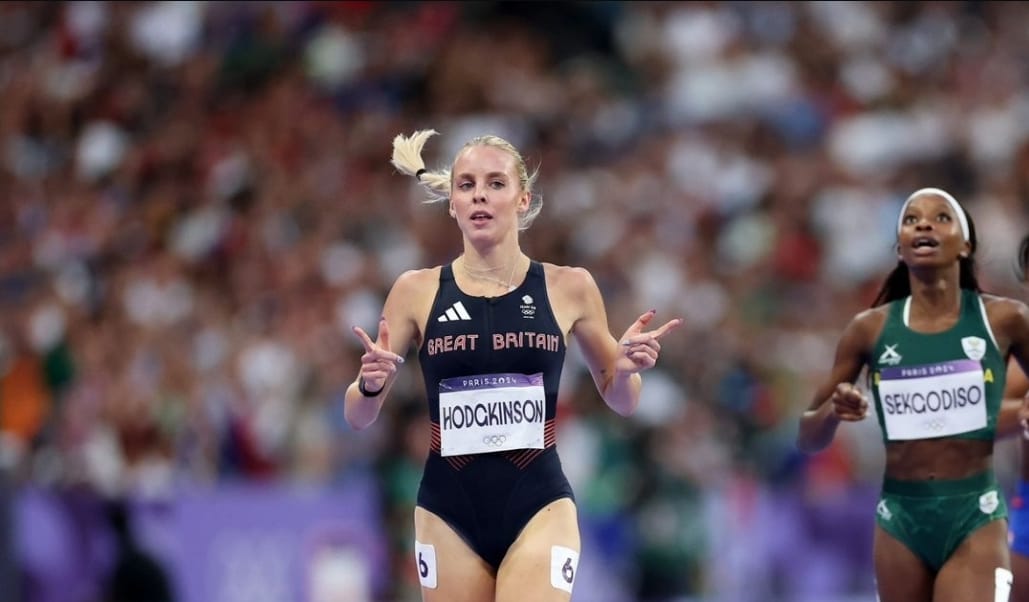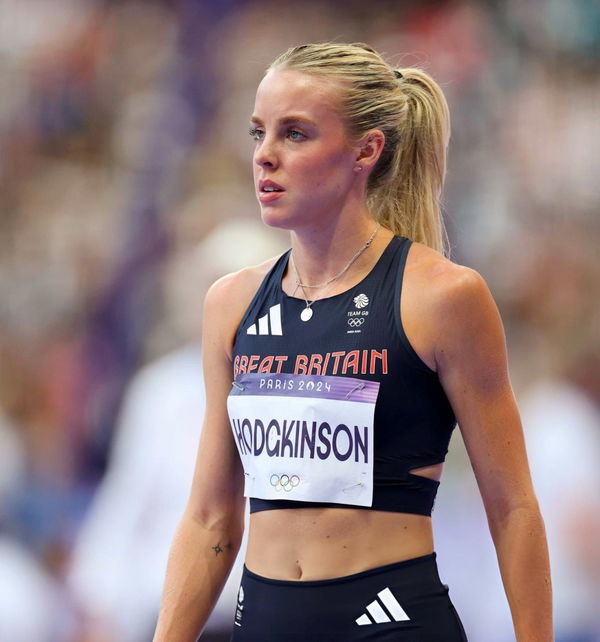

There are some serious issues going on with UK athletics. As it is grappling with a significant setback bound to hamper athletes like Keely Hodgkinson, that too is aspects of finance, even after bagging 10 medals in the Paris Olympics 2024. UK athletics are facing a £2 million cut in Olympic funding despite its athletes delivering an outstanding performance. That surely doesn’t make any sense now. The team fought hard and brought home an impressive ten medals—three golds, four silvers, and three bronzes—marking one of the best-ever hauls on the global stage, but they are about to lose at this point in terms of funding.
Watch What’s Trending Now!
This cut of crucial funding comes at an odd time, just as athletes like Keely Hodgkinson, whose silver medal in the 800m projects her world-class talent. Altogether, other talented athletes like Josh Kerr and Katarina Johnson-Thompson achieved significant success. The decision has sparked deep disappointment and concern among the track and field community, as many fear it will undermine the future development of British athletics.
ADVERTISEMENT
Keely Hodgkinson’s Journey and the Paris Medal Success
Keely Hodgkinson is one of Britain’s brightest stars when we talk about track and field. She’s known for her grace, determination, and record-breaking performances. The 22-year-old middle-distance runner rose to fame at the Tokyo Olympics in 2021. She bagged silver in the 800m at just 19 years old, depicting such an amazing performance. Hodgkinson followed this up with another silver medal in the same event at Paris 2024, solidifying her place as one of the world’s elite athletes.
ADVERTISEMENT
Hodgkinson’s achievements at Paris were part of a historic ten-medal haul by the UK Athletics team, including three golds, four silvers, and three bronzes. All these medals came from a range of disciplines, showcasing the depth and diversity of British talent. Over Hodgkinson’s silver, the best standout performances by the UK included Josh Kerr’s gold in the 1500m, Katarina Johnson-Thompson’s triumph in the heptathlon, and Jade Jones’ gold in the women’s 57kg taekwondo category. The cuts come at a critical time for Hodgkinson, whose development has depended on funding for elite training, coaching, and international competitions.
ADVERTISEMENT

The uncertainty surrounding these resources could jeopardize Keely Hodgkinson’s preparation for future events like the World Championships and the Los Angeles 2028 Olympics. As a leader of this generation, Hodgkinson’s continued success is crucial for inspiring young athletes and maintaining the country’s track and field legacy.
ADVERTISEMENT
Community Backlash and Broader Implications
The funding decision has been met with widespread backlash, as expected. Heated debates are going on over social platforms like Reddit. One user summed up the sentiment once and for all: “This is disappointing. With recent leadership changes, many upcoming athletes will struggle due to reduced funding.” As we see frequent changes at the top of UK athletics that have created instability, these cuts further threaten the system meant to nurture young talent.
ADVERTISEMENT
Criticisms have also been directed at UK Athletics’ controversial selection policies. “UK Athletics only sends athletes capable of placing in the top 8, excluding those like Jake Norris, ranked 13th globally but still a strong contender,” another reddit user said. Basically, such policies deny athletes the opportunity to gain valuable experience, stunting their potential on the international stage. It’s unfair for such strong contenders to not get any chance for performing on the international stage.
The funding challenges are not unique to the UK. One fan drew a parallel to the Netherlands, stating, “After their most successful Olympics, even the Netherlands is facing huge cuts to sports funding.” Economic factors are also at play, with one commenter linking the cuts to national challenges. “Brexit and economic troubles mean Britain’s belt has to be tightened again. This affects everyone, from young athletes to fans who love seeing British medal wins.” The broader political and economic decisions trickling down to impact sports funding are diminishing opportunities for growth and success in the UK, which is absolutely getting out of hand.
ADVERTISEMENT
Finally, the disproportionate impact of the cuts compared to other sports has drawn attention. As another noted: “It’s astonishing that £2 million can make such a big difference in track and field compared to higher salaries in other sports.” Athletics, with its limited commercial appeal, relies heavily on public funding, making it especially vulnerable to cuts. A notable discrepancy is brought to light by UK athletics’ cutbacks. For instance, Premier League contracts allow elite British soccer players to make over £100,000 per week, which is far more than UK Athletics’ yearly sponsorship of about £25,000. Because of this restricted support, players sometimes need to work additional jobs to help pay for coaching, travel, and training.
The £2 million funding cut has cast a shadow over UK Athletics’ incredible ten-medal success at Paris, threatening the careers of athletes like Keely Hodgkinson and the future of the sport as a whole. With community backlash mounting, it’s clear that these cuts could have long-term consequences, stalling the progress of British track and field on the world stage. If decision-makers fail to reassess their priorities, the risk is clear: fewer medals, fewer opportunities for young talents, and diminished national pride. For a sport that has consistently delivered for Britain, the call to restore funding is louder than ever.
ADVERTISEMENT
ADVERTISEMENT
ADVERTISEMENT
ADVERTISEMENT